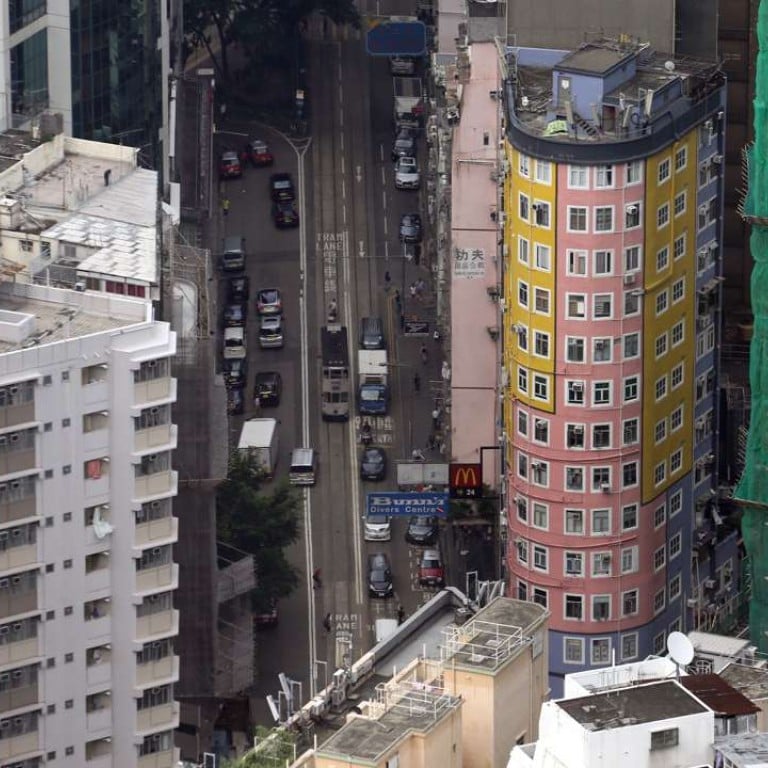
Hong Kong’s home prices will continue to fall despite recent pick up in sales momentum
If history is anything to go by, the recent pick-up in home sales in Hong Kong will soon come to an end and the housing market will continue to head downward due to mainland China and Hong Kong economic uncertainties.
The fall out from Brexit and concerns about increased global economic risk may delay increases in US interest rates, while the devaluation of the yuan could prompt some mainland Chinese, once a key source of property buying in Hong Kong, to consider buying properties offshore to diversify their asset allocation . However, analysts said these positive factors won’t reverse the coming downturn in the city’s housing market.
“When we made a prediction that Hong Kong would be entering a correction in the next two years, we did not expect a sharp dive in home prices in such a short period of time, but a spiralled decline. Prices and sales will go up and down during the correction process,” said Eva Lee, executive director and head of Hong Kong/China property research at UBS.
Lee said the recent sales pick-up is just a repeat of what the market experienced in previous downward cycles.
During a period of falling prices, some buyers would be attracted to enter the market and that would stabilise prices for a while, but then prices would drop again, she added.
UBS maintains its view that Hong Kong home prices could tumble by as much as 30 per cent by the end of 2017 as buying demand is hurt by a deteriorating economy, rising unemployment rates and lower inflation.
Prices and sales will go up and down during the correction process
The city’s housing market showed some improvement over the weekend. Some 125 out of 130 units offered at The Ascent in Cheung Sha Wan district were sold within three hours on Sunday. The project is jointly developed by Hong Kong-listed Paliburg, its subsidiary Regal Hotels International and the Urban Renewal Authority.
Private home prices rebounded 0.7 per cent in April and 0.73 per cent in May after a downtrend. Still, prices are 10 per cent off their September 2015 peak, government data showed.
More fundamentally, homes are still essentially unaffordable, according to Colliers International.
“Hong Kong’s price/household income ratio stands at 19 times, the highest level in the world. We expect residential prices to deflate over the next three years as interest rates normalise and as supply
increases to around 23,000 units per annum,” said Joanne Lee, associate director of Colliers’ Hong Kong office.
“A reversion in affordability to the historic average would imply a decline in prices of perhaps 30 per cent over the next three years or so. This negative scenario cannot yet be ruled out,” she said.
Analysts said buying confidence is overshadowed by a weak global market, the slowing Chinese economy and a volatile stock market. Mainland buyers withdrew as China tightened capital outflows.
The devaluation of yuan may see some mainlanders consider buying again in Hong Kong but most of them find it difficult to transfer capital offshore, said UBS’s Lee.
David Liang, who immigrated to Hong Kong from the mainland through an investment scheme a few years ago, said his family would hold back from any property investment in the city right now due to capital outflows and political and economic uncertainties. “You’ve got a [Hong Kong] Chief Executive election next year and it is hard to predict what will happen next.”
Li Shiyu is a Shenzhen resident whose family runs a trading business in mainland China. The Li family is eyeing a three-bedroom flat in the New Territories, with a budget of HK$6 million to HK$8 million.
“We are keeping an eye on it as a way to diversify our asset allocation, but will wait until the prices drop further before buying,” Li said.

Hong Kong’s overall property sales volume plunged nearly 40 per cent year on year in the first half of the year.
Colliers said super-deluxe residential properties are less vulnerable to a downturn, as the ultra-luxury segment is always subject to extremely tight supply and buyers are willing to pay headline-grabbing prices for trophy assets.
The prospect of slower increases in interest rates coupled with greater incentives offered by developers will help to speed up sales, it said.
“We believe the primary market should dominate residential property sales in the remaining half of the year,” said Colliers’ Lee. “Given the stretched affordability, as Hong Kong is still severely unaffordable, [and with] slowing demand and rising supply, Hong Kong’s residential market should experience a soft landing. We maintain our predictions of a 10 per cent to 15 per cent price drop in 2016.”


